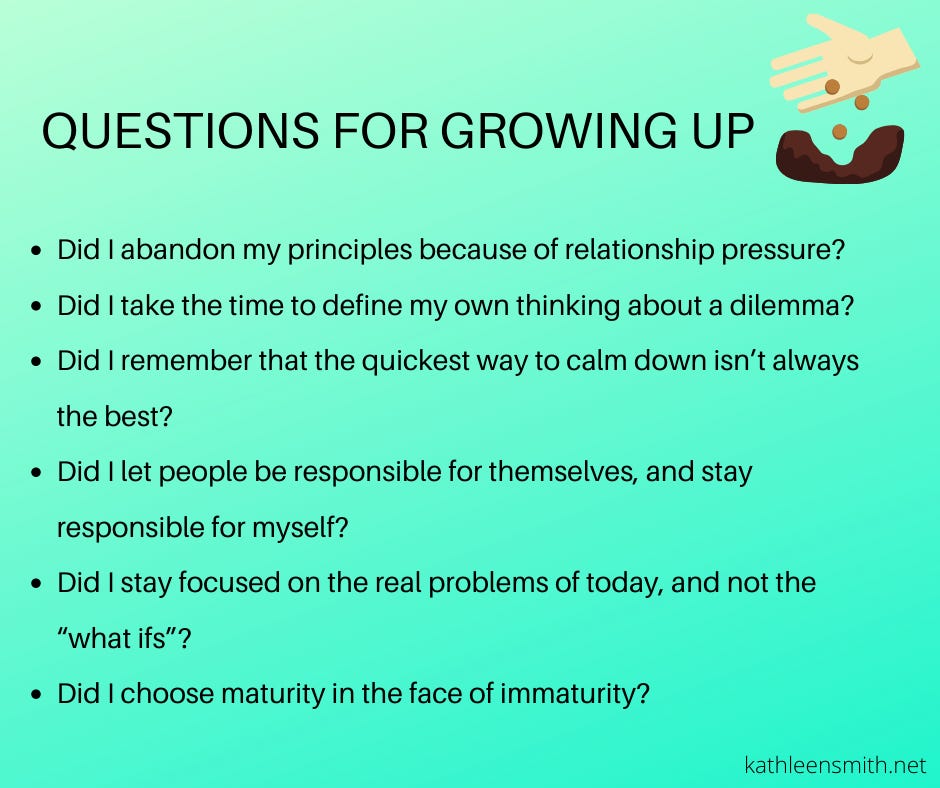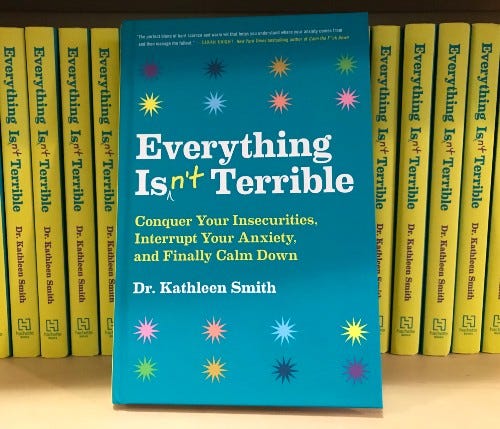Calming Down Isn't Growing Up
Expand your focus past the symptoms of anxiety.

Last month CNN reported that anti-anxiety medication prescriptions were up 34%. This isn’t surprising, considering our new reality. The world is on fire, and many of our strategies for coping, like going to the gym, or spending times with friends, are unavailable or carry added stressors.
People will pay their therapist a great deal to tell them that medication, meditation, better sleep, exercise, or turning off their screens can help calm them down. But no one needs a degree to know that these things are true. People often want to focus on self-care in therapy, implement a strategy, and claim victory once their symptoms disappear. Only to find that that the symptoms return with the next crisis, or outsmart their current plan.
Managing anxiety is an important part of being responsible for yourself, but it isn’t the whole pie. Running doesn’t teach you how to stop overfunctioning for your kids. A meditation app doesn’t tell you want to say when your parents order you to fall in line. Medication doesn’t tell you how to hold onto your principles in a world driven by reactivity and outrage.
It’s true that symptom-focused solutions can help you calm down enough to do the hard work on yourself. But too much focus on alleviating symptoms ignores the reality that moving towards one’s self, being driven by one’s own thinking and not relationship pressure, requires some anxiety. There’s an anxiety of progression you will experience as you untangle your beliefs from people’s reactions, and activate those beliefs in challenging relationships.
By itself, how anxious you feel is a terrible measure of progress. So in addition to asking, “How anxious do I feel today?” here are some examples of questions you could ask yourself to measure growth:
When did I abandon my principles because of relationship pressure?
Did I take the time to define my own thinking about a dilemma?
Did I remember that the quickest way to calm down isn’t always the best?
Did I let people be responsible for themselves, and stay responsible for myself?
When did I stay focused on the real problems of today, and not the “what ifs”?
When did I choose maturity in the face of immaturity?
If you’ve felt more anxious lately, you’re not failing pandemic life. If you’ve had to rely on extra help, you’re not failing pandemic life. But consider asking yourself, “What am I missing when I only use my symptoms, or lack thereof, as a measure of growth?” Or even better, “Am I willing to put up with the discomfort of stumbling towards maturity?”
Anxiety can dictate your life whether you have symptoms or not. So what would it take to make space for good questions that spur growth in the midst of distress? The world will always have solutions for calming down. So consider what it would look like for you to grow up in these anxious times.
News from Kathleen
Read my latest at Forge – “Use This Time to Let Go of Your Pseudo-Self”
Listen to my interview about managing anxiety in the time of COVID-19 with Kaylee Fagan on the Overthinking It podcast.
Upcoming Virtual Speaking Events:
Thursday, May 28th 2-3pm – Vermont Center for Family Studies – Exploring Quarantine Anxiety (FREE webinar) Register here.
Thursday, May 28th – 7:30pm – The Bowen Center -Writing About Bowen Theory for a Popular Audience (currently full)
Friday, June 5th - Vermont Center for Family Studies’ Symposium – Using Bowen Theory with Young Adult Clients
Wednesday, June 17th – Family Systems Institute ½ day Conference - Systems Thinking in Stressful Times (*note this is the evening of June 16th for US participants)
Buy my book! If you haven't gotten your copy of Everything Isn't Terrible yet, you can buy it from Amazon, Barnes and Noble, Indiebound, Target, or anywhere you buy books! But I encourage you to support your local indie bookstore. The book is also available in e-book and audio book form.

New Anxiety Journal! The folks at Hachette Books have helped me create a new, free digital resource to supplement your reading of my book, Everything Isn’t Terrible. It’s called Calming Down & Growing Up: A 30-Day Anxiety Journal, and it includes thirty daily prompts to help you reflect on and respond to your anxious behaviors, using the ideas in Everything Isn’t Terrible.
To get a copy of the digital journal, you can submit a copy of your receipt for my book at the Hachette page, and they’ll send you it to you. Or you can email me.
If you're new to the newsletter, you can check out my website for past newsletters about anxiety and relationships. You can follow me on Twitter, Facebook, or Instagram, or email me if you have questions about the book, want me to speak to your group, or want to learn more about my therapy practice in Washington, DC. You can also visit the Bowen Center’s website to learn more about Bowen theory, as well their conferences and training programs.

